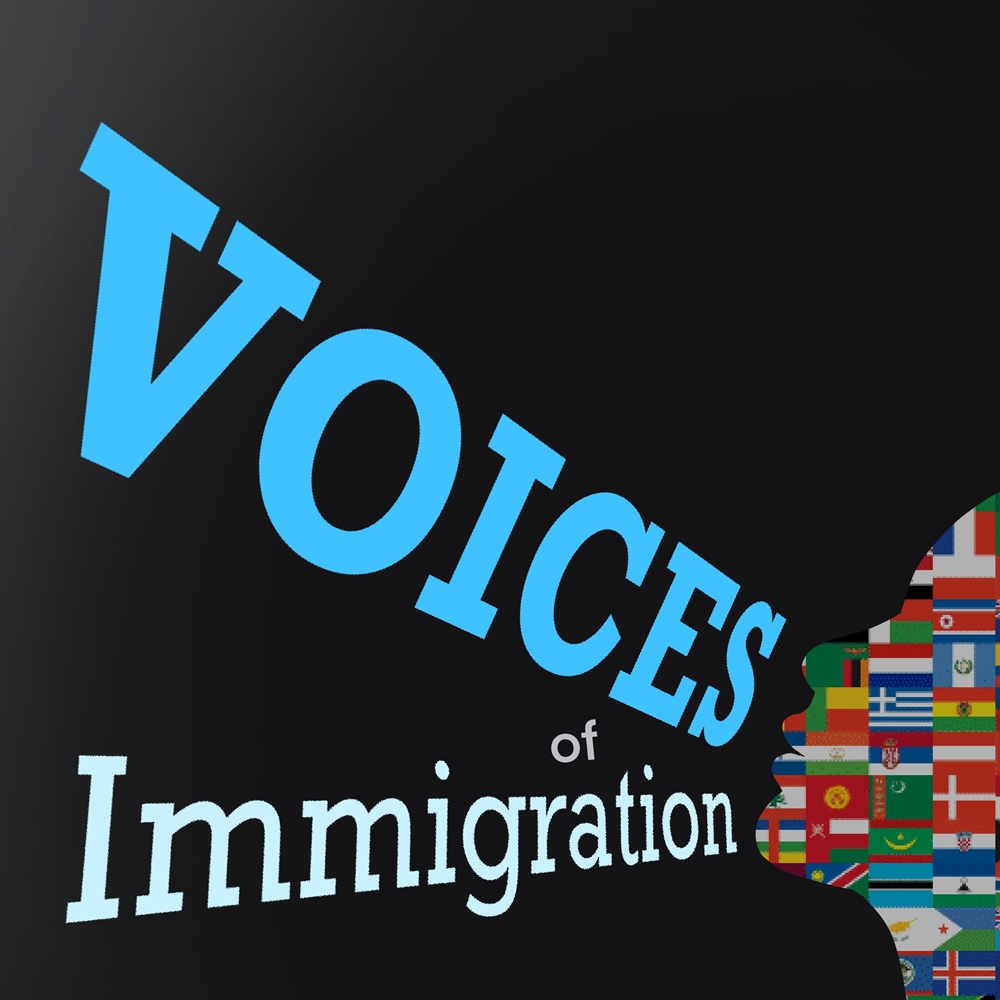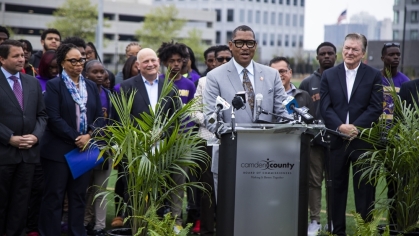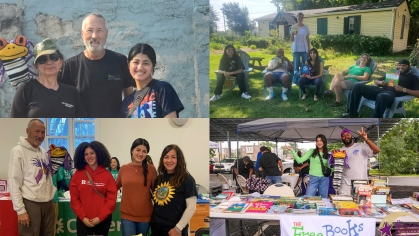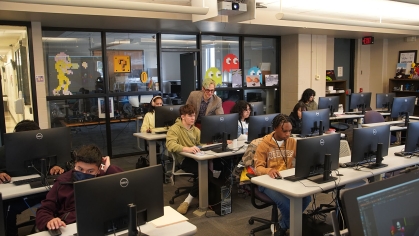Digital Studies Students Launch “Voices of Immigration” Podcast

The podcast is available on the streaming platforms SoundCloud, Apple Podcasts, and Spotify under the name DiSC at Rutgers–Camden Voices of Immigration.
Simply put, explains Tania Martinez, there’s more to the story.
During her time at Rutgers University–Camden, she has met countless people on campus and in the surrounding area who have shared incredible stories about their immigrant experiences.
Now she wants others to hear them as well.
Martinez and fellow undergraduate researchers in the Digital Studies Center at Rutgers–Camden have launched “Voices of Immigration,” an interdisciplinary research podcast that focuses on the student experiences of various generations of immigrants.
“The purpose of the podcast is to uplift the voices and experiences of immigrants in our community,” says the junior political science and philosophy major. “We contextualize their experiences by explaining the social and political aspects of them, especially on contemporary issues.”
By shedding light on these experiences, Martinez continues, it humanizes the issues and brings light to the problems of the dialogue that exist in the conversations about immigrants today.
“I wanted to empower immigrants’ stories by working with them to tell the larger narrative of why these experiences are important to amplify,” says the Camden resident. “This is done in terms of breaking down various social and political current events and contemporary issues, while utilizing statistics and research for the audience.”
The Rutgers–Camden student hopes that the recorded podcast – available on the streaming platforms SoundCloud, Apple Podcasts, and Spotify under the name DiSC at Rutgers–Camden Voices of Immigration – will resonate with individuals who aren’t typically engaged with politics.

Martinez says she hopes that listeners can get a clear understanding of new narratives and to understand immigration policies and controversies.
“My hope is that they can get a clear understanding of narratives they haven’t been introduced to and to understand immigration policies and controversies,” says the Springdale, Ark., native.
She further posits that Americans live in a society where it is easy to become desensitized to social media alerts on current events that pop up on their phones. She says the podcast format helps remind them that there are faces behind the stories.
“The fact that the problems with immigration policies are due to an intense history of xenophobia that systematically oppresses many groups of people needs more conversation and understanding,” she says.
In the first episode, Martinez and Sandra Benjamin, a recent graduate with a bachelor’s degree in economics, will share their personal stories as second-generation immigrants. They plan to open up their experiences, says Martinez, so that listeners can get to know the hosts, and some can hopefully relate to their experiences.
In the second episode, Dhrruv Singroha, a junior finance and economics major, will share his experiences living abroad as an international student and having to navigate going home when most of the world was shutting down their borders. Melani Cruz Stokes, a senior criminal justice major and former president of Rutgers–Camden’s chapter of Define American, will share her advocacy efforts with the organization’s undocumented and international student fund.
The podcast will highlight updates on immigration reform, especially those in relation to DACA, as they are happening, with guest immigration lawyers and activists, along with students. The episodes will also discuss issues related to the treatment of immigrants in the United States as they relate to current events, as well as various immigrant experiences that highlight the intersectionality of identities.
“Our role is to give students a platform to tell their own stories in a manner that they are comfortable by supporting them through that process,” says Martinez. “We do the research, provide the context for them, and help to facilitate the conversation, and all they have to do is tell their stories.”
Established in 2013, the Digital Studies Center at Rutgers–Camden is an interdisciplinary, collaborative research center that kick-starts, facilitates, supports, and promotes projects made possible by the convergence of digital technologies with the humanities, and the natural and social sciences.


